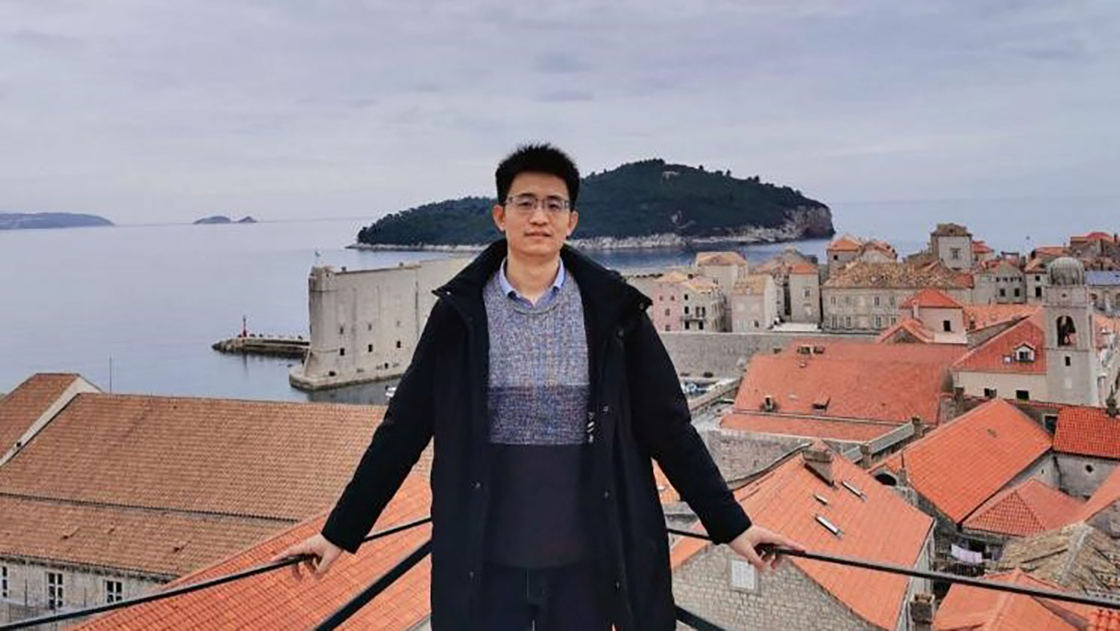Recently, Dr. Xiaokun Wang, a young faculty member of the School of Computer and Communication Engineering, was awarded a prize in the EU's Horizon 2020 research and innovation framework after a rigorous evaluation by the European Research Council (ERC). "The project is supported by the Marie Skłodowska-Curie Individual Fellowships (MSCA-IF). This will be followed by international collaborative research with the team of Professor Jian Chang at Bournemouth University, National Centre for Computer Animation, UK, on the topic " Multi-level Multi-phase Fluid Animation", the project is funded for about 225,000 Euros for 24 months.

"The European Union Framework Programme for Scientific Research (FPRS), which began in 1984, is a major medium-term research programme involving the member States of the European Union, focusing on cutting-edge and competitive international scientific and technological challenges. The Seventh Framework Programme was launched on 1 January 2007 and will run until 2013 with a total budget of more than 53 billion euros. "Horizon 2020" was officially launched in the UK on January 31, 2014 and the UK is expected to compete for a larger share of this programme with a total budget of €80 billion over the next seven years. "Almost all of the EU's research programmes are covered by Horizon 2020, which is divided into three main areas: basic research, applied technology and tackling common challenges facing humanity, with the main aim of integrating research resources, improving efficiency, promoting innovation, economic growth and employment. The programme will also invest 2.8 billion euros in the Strategic Innovation Agenda and 2.5 billion euros in innovation for small and medium-sized enterprises.
The Marie Skłodowska-Curie Action Plan (MSCA), named after the two-time Nobel laureate and Polish-French scientist "Madame Curie", is part of the Horizon 2020 programme. "The MSCA-IF project, which is internationally renowned and one of the highest individual research awards funded by the EU, aims to fund collaborative research between the world's leading researchers and Europe, with the aim of promoting scientific progress and strengthening the relationship between researchers and the European Union. Cooperation between European research institutions and competition for applications is fierce. According to the statistical information on the assessment results released by the European Research Council, the funding rate for projects in the field of engineering and technology in 2020 is only about 13% globally, with about 124 funded projects.
Dr. Xiaokun Wang, graduated from the Department of Computer Science and Technology, University of Science and Technology Beijing in January 2017, and stayed on campus. He is mainly engaged in research work in computer graphics and virtual reality, with research focus on physics-based fluid animation. He has led 6 projects such as the National Natural Science Foundation of China (NSFC), sub-projects of the National Key Research and Development Program (NCRP), the China Postdoctoral Fund (CPDF), and the Basic Research Expenses for Central Universities. In recent years, he has published more than 20 papers in high level academic conferences and journals such as ACM SIGGRAPH, IEEE VR, CGI, CGF, NCA, JVLC, etc., including 3 papers in CCF Class A conference. He has been awarded by University of Science and Technology Beijing as excellent postdoctoral fellow, the first prize of scientific and technological progress of China Gold Association, the first prize of Guangxi excellent urban planning and design.
Dr. Wang's research team is the Artificial Intelligence and 3D Visualization Laboratory (http://ustb-ai3d.cn/index) led by Professor Xiaojuan Ban, which has achieved a series of excellent research results in artificial intelligence, computer vision, natural human-computer interaction, computer graphics, virtual reality and other research directions. The successful approval of the Marie Curie Individual Scholarship is an important achievement in the team's international academic exchange and cooperation and the training of young teachers. It is reported that this is the first time for our teachers to successfully apply for MSCA project funding, which means that their research work has been recognized by their European counterparts, and it is of great significance to enhance the international influence of our university and expand the deep international cooperation with European countries.



